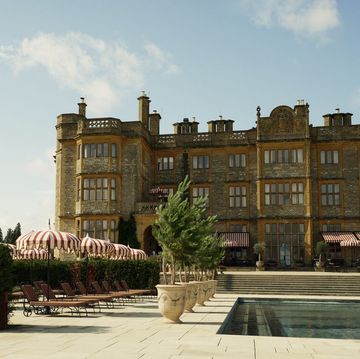Words by Aimee O'Loughlin
Today marks the 90th anniversary of F. Scott Fitzgerald’s classic, The Great Gatsby. A novel which flawlessly captures the American Dream and the Roaring Twenties, exposing the emptiness of the era’s materialistic ideas whilst conveying compelling, destructive characters through Fitzgerald’s undeniable poetic power. Gatsby is among a handful of books that can be enjoyed again and again, and so to celebrate it entering its ninetieth year, we’ve handpicked its most beautiful quotes for you to enjoy.
'Gatsby believed in the green light, the orgastic future that year by year recedes before us. It eluded us then, but that's no matter - tomorrow we will run faster, stretch out our arms farther... And one fine morning - So we beat on, boats against the current, borne back ceaselessly into the past.'
‘He smiled understandingly-much more than understandingly. It was one of those rare smiles with a quality of eternal reassurance in it, that you may come across four or five times in life. It faced - or seemed to face - the whole eternal world for an instant, and then concentrated on you with an irresistible prejudice in your favor. It understood you just as far as you wanted to be understood, believed in you as you would like to believe in yourself, and assured you that it had precisely the impression of you that, at your best, you hoped to convey.’
‘His heart beat faster and faster as Daisy’s white face came up to his own. He knew that when he kissed this girl, and forever wed his unutterable visions to her perishable breath, his mind would never romp again like the mind of God. So he waited, listening for a moment longer to the tuning fork that had been struck upon a star. Then he kissed her. At his lips’ touch she blossomed like a flower and the incarnation was complete.’
‘For a moment the last sunshine fell with romantic affection upon her glowing face; her voice compelled me forward breathlessly as I listened - then the glow faded, each light deserting her with lingering regret, like children leaving a pleasant street at dusk.’
‘But his heart was in a constant, turbulent riot. The most grotesque and fantastic conceits haunted him in his bed at night. A universe of ineffable gaudiness spun itself out in his brain while the clock ticked on the washstand and the moon soaked with wet light his tangled clothes upon the floor. Each night he added to the pattern of his fancies until drowsiness closed down upon some vivid scene with an oblivious embrace. For awhile these reveries provided an outlet for his imagination; they were a satisfactory hint of the unreality of reality, a promise that the rock of the world was founded securely on a fairy's wing.’












